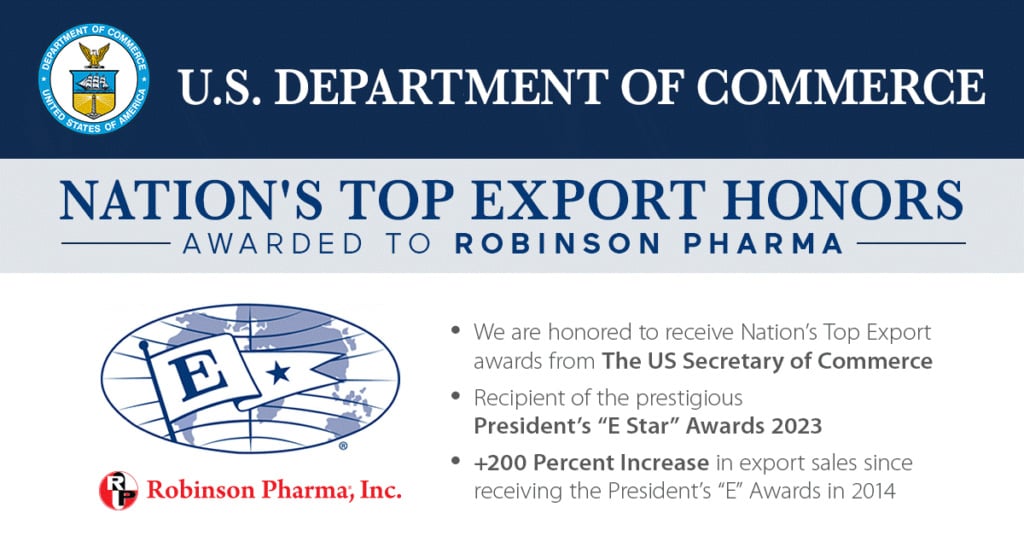According to Statista, the global dietary supplement industry is projected to grow by approximately $127 billion over 10 years from 2018 to 2028. Dietary supplements have become an essential and irreplaceable part of today’s life, helping to enhance both mental and physical health. Nowadays, many people are also inclined to choose plant-based products. As we move into 2024, we are witnessing a strong transformation with numerous new trends. This article will summarize the 12 most prominent trends in the supplement industry and key changes in production.
Key Takeaways
- Consumers are increasingly opting for natural and plant-based products.
- There is a rise in supplements tailored specifically for women and various life stages.
- The increase in sustainability and ethics in production is becoming more prominent.
- Clean labels are gradually attracting and dominating more attention in the market.
What Does Dietary Supplement Mean?
A dietary supplement is a product added to a person’s diet, typically consumed by mouth in forms like pills, capsules, powders, or liquids. According to the National Cancer Institute, “A dietary supplement is taken by mouth and usually contains one or more dietary ingredients. Examples of dietary ingredients include vitamins, minerals, herbs, amino acids, and enzymes.“. It is essential to consult a healthcare provider before taking dietary supplements, as some may have side effects or interact with medications.
These products can provide essential nutrients extracted from food or created synthetically, including vitamins, minerals, and amino acids. Additionally, some supplements contain compounds not deemed essential for life but are marketed for their potential health benefits.
The Growth of the Dietary Supplement Industry
According to Fortune Business Insights, the global dietary supplements market was valued at USD 61.20 billion in 2020 and is projected to reach USD 128.64 billion by 2028, with a compound annual growth rate (CAGR) of 8.68%. In the U.S., the market is expected to grow to USD 34.79 billion by 2032, driven by increasing consumer awareness of health and wellness, as well as a rise in lifestyle-related diseases.
The COVID-19 pandemic accelerated demand for dietary supplements as individuals focused on health maintenance and disease prevention. The growing popularity of sports supplements also contributes to market expansion. Government initiatives, such as India’s economic stimulus for herbal cultivation, further support the industry’s growth.
Here are the key development trends in the dietary supplement industry that you should pay attention to.
12 Trends in the Dietary Supplement Industry
Cognitive Health
Mental health has become one of the leading trends in 2024.
Today, we are much more focused on mental health. This is a strong basis for the development of mental health supplements. Recognizing the connection between brain health and overall health is one reason consumers seek solutions to maintain cognitive function and reduce age-related decline.
Consumers are looking for products that help reduce stress, improve mood, and enhance brain and nervous system function.
Supplements for mental health, such as B vitamins, adaptogens, and herbs like ashwagandha, are becoming popular. These ingredients help reduce stress, improve mood, and boost cognitive function.
At the same time, a healthy lifestyle that includes a balanced diet, exercise, quality sleep, and mental stimulation is also valued in maintaining brain health.

Overall Wellness
In addition to enhancing mental health, improving overall health is also a choice for the majority of users. People who want to boost both physical and mental health will greatly appreciate these products. This is especially true for products that support sleep, reduce stress, and provide comprehensive nutrition. For example, vitamin C, omega-3, and herbs that support overall health are gaining attention.
Gut Health
Gut health is also receiving significant attention. It plays a crucial role in maintaining overall health, the immune system, and mental health.
Methods for regulating the microbiome, such as probiotics, prebiotics, synbiotics, and postbiotics, are being emphasized. Probiotics help maintain microbiome balance; prebiotics nourish beneficial bacteria; synbiotics combine both to improve gut health. Along with plant fibers and products that care for the gut microbiota, these are becoming increasingly popular to improve digestion and support the immune system.
Immune Support
We certainly haven’t forgotten the COVID-19 pandemic, which weakened immune systems and devastated the bodies of many patients. As a result, dietary supplements that boost the immune system are also being noticed and chosen.
A strong immune system provides better health to fight illness and improves overall quality of life. It helps prevent and support the body in combating diseases more effectively.
Immune-supporting supplements such as vitamin D (especially in areas with limited sunlight), colostrum, and herbs like echinacea are popular. Vitamin C products can benefit respiratory and immune health. To enhance immune cell activity, you might choose bovine colostrum. Herbs like echinacea, elderberry, and astragalus also naturally support immune health. Probiotics are a great choice for those wanting to improve both immune function and gut health. These products help strengthen the immune system, especially during seasonal transitions.

Weight Management and Fitness
Choosing products that support weight management and fitness is a top priority for those who exercise or simply want to improve their physical health.
Supplements supporting exercise, aiding recovery, boosting strength, and protecting joints enhance workout performance and user strength. Popular ingredients include berberine, chromium, and plant-based proteins that enhance exercise effectiveness and maintain ideal weight.
Plant-Based Supplements
To ensure health safety, many people are choosing plant-based supplements. These products are both good for health and environmentally friendly.
Plant-based protein products, omega-3 from algae, and other nutrients dominate the market.
Sustainability and Ethics
In addition to product benefits, people are also concerned about the sustainability and ethics of products. Supplement companies are moving towards reducing emissions, using renewable energy, and ensuring ethical production processes.
This shows that using recycled packaging and sustainably sourced ingredients is becoming the new standard, meeting consumer environmental and social responsibility demands.
Skin Health
Skin is a major concern for both women and men. Maintaining healthy skin helps us feel more confident.
The demand for skin health products is rapidly increasing, especially those containing vitamin C, biotin, and magnesium, which protect and nourish the skin from aging factors. Vitamin C is the most common ingredient, followed by vitamin B7 (biotin) and magnesium, vitamin E, and other B vitamins.
Moreover, products containing collagen peptides, astaxanthin, and biotin not only improve skin elasticity and reduce wrinkles but also enhance the health of hair and nails.

Women’s Health
Do you wonder what products are beneficial for women’s health?
These are health products specifically designed for women, especially nutritional supplements tailored to different life stages, such as menstruation, pregnancy, and menopause, which are attracting significant attention. Many new products also contain ingredients that support mood and sleep and reduce inflammation, providing comprehensive benefits for women’s health.
Products aimed at women during pregnancy or breastfeeding often contain essential nutrients such as iron and calcium, which are also experiencing significant growth.
Metabolic Health
Supplements that support metabolic health and improve nutrient absorption are also gaining more attention. Recently, this demand has been increasing rapidly.
Products containing berberine, a compound from herbs, support normal lipid and glucose levels in the blood. Chromium helps glucose enter cells and improves glucose and lipid levels. Omega-3, especially EPA, helps maintain healthy triglyceride levels, crucial for metabolic health and overall well-being.
Energy Boost
Boosting energy helps you stay active and recover quickly.
Although energy-boosting products have been around for a long time, their demand remains high, with products containing B vitamins, ginseng, and natural caffeine. B vitamins are often key ingredients in energy supplements. In addition to B vitamins, herbs like ginseng and natural caffeine sources like guarana are also popular.
Gummies are the most popular form due to their convenience and ease of use.
Allergy Support
Another prominent trend is products that help reduce allergy symptoms, such as quail egg powder, apple polyphenols, quercetin, and curcumin. Studies have demonstrated the benefits of quail egg powder and apple polyphenols. At the same time, quercetin and curcumin have been shown to support eye, nose, respiratory, and upper respiratory health.
From food allergies to environmental allergies, there is increasing development to meet the needs of consumers dealing with allergies.

Trends in Dietary Supplement Manufacturing
Personalization
Each of us is unique. Consumers are seeking supplements that match their individual nutritional needs and lifestyles. This challenge creating supplements tailored to different groups and customer profiles with distinct characteristics presents a challenge.
Research also suggests that using personalization methods to initiate healthy eating behaviors is a promising strategy, as individuals differ in health status, nutritional needs, and desired behavior change support.
Some companies have developed personalized supplement packaging services since 2019. For example, Mars acquired a majority stake in Foodspring, a DTC business in Germany that provides nutritional consulting services and supplements such as protein shakes and snacks.
Nestlé has also entered the personalized nutrition field by acquiring Persona, a company specializing in providing vitamins based on individual lifestyle and nutritional needs, helping to establish appropriate dietary regimes.
Clean Label Formulations
It can be said that clean label formulation is a rapidly growing trend in the food industry. This approach focuses on producing products with clear, transparent, understandable, and natural ingredients. Clean labeling aims to minimize or eliminate artificial additives, chemicals, or ingredients with complex names that are difficult for consumers to understand.
Research shows that clean label formulations help consumers perceive the ingredients as natural and transparent. Dietary supplements also gradually remove artificial ingredients and use plant-based proteins and natural vitamins instead of synthetic ones.
Sustainable Packaging
Packaging plays a crucial role in preserving and extending the shelf life of products, from food to pharmaceuticals. However, the use of non-sustainable packaging is negatively impacting the environment. The production of sustainable packaging is also an urgent societal need. These types of packaging protect the product and support the environment, ensuring long-term sustainability.
In pursuing sustainability and environmental protection, product packaging is increasingly being designed to be environmentally friendly, recyclable, or biodegradable.
Transparency and Labeling
Transparency in the food industry, also known as clean labeling, requires manufacturers to openly disclose details about the ingredients and origins of their products. For instance, QR codes from Big Food and initiatives like Unilever’s Real Food Movement have encouraged updates to packaging information, making it easier for consumers to access and understand the products they consume.
Conclusion
In 2024, the dietary supplement industry is entering a robust development phase with new trends focusing on holistic health, sustainability, and personalization. Modern consumers increasingly demand versatile, transparent, and environmentally friendly products, opening up significant opportunities for this industry in the future.
Robinson Pharma offers comprehensive services such as contract manufacturing and custom formulation, ensuring that dietary supplement manufacturers can meet these evolving demands with high-quality, tailored products.



